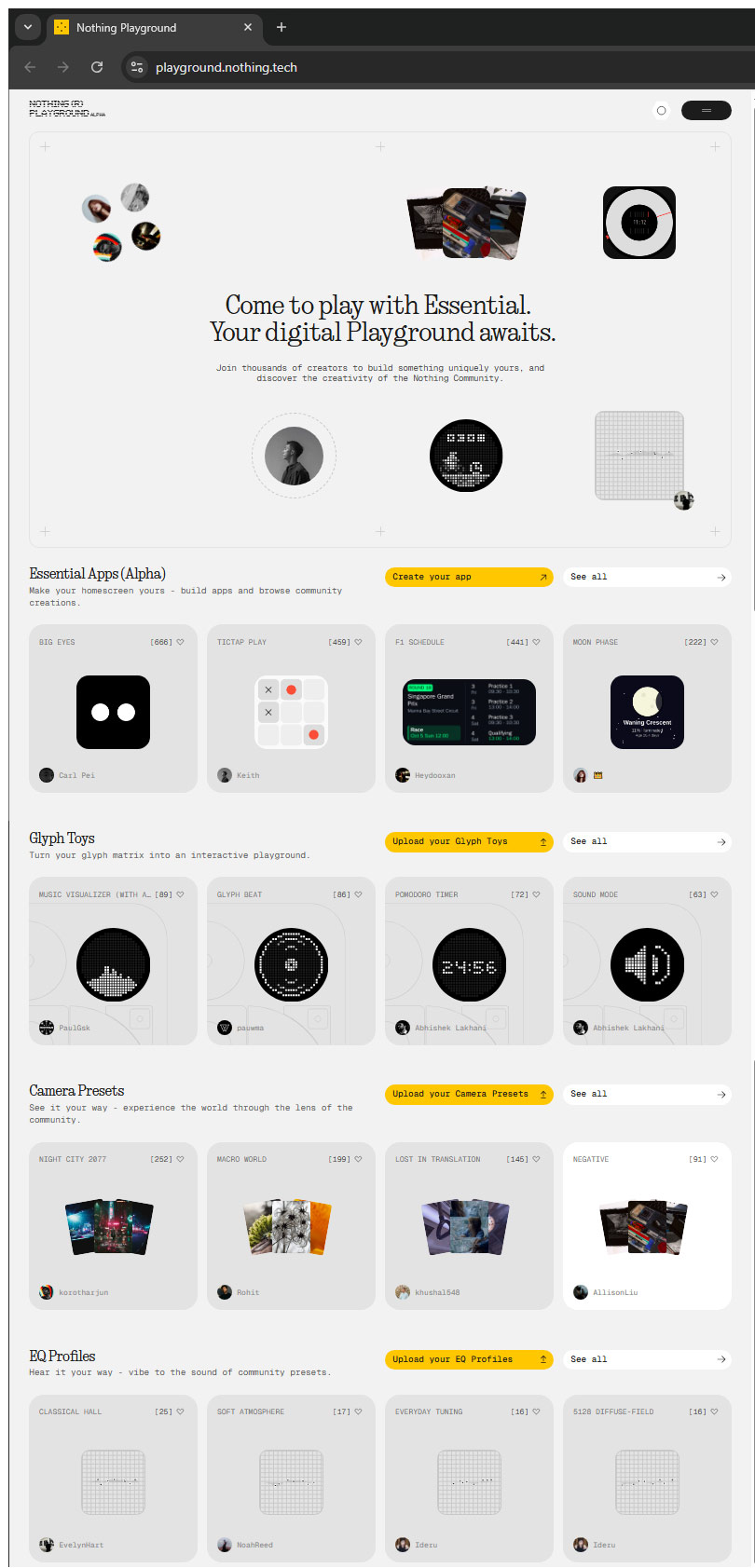Nothing has lately made a bold proclamation: it’s taken “the first step towards an AI-native operating system.”
But to be precise, that claim is more vision than reality. The company’s new “Essential” platform and its companion “Playground” app hub don’t yet displace Android. They're just layers running on the existing operating system. In Nothing’s framing, Essential is the umbrella under which its AI initiatives now live.
While it's not a full OS yet, but it's rethinking how users interact with their devices.
This idea lands in a way that sparks excitement: a peek at what smartphones might become if they felt more alive, more personal, more adaptable.
And not to mention, less tethered to the status quo.
And Playground does that well, and shows a promising future where AI is taking over phones, and make smartphones just smart, and current smartphones dumber.
it’s a rethinking of how users interact with devices.
Playground by Nothing. Where community comes together to create. pic.twitter.com/Uy5zFcgEb8
— Essential (@essential) October 2, 2025
At this time, Nothing has a bunch of Essentials, like an AI search tool, a spatial memory that organizes users' voice notes and images.
But Playground is where users can generate their own mini apps via natural language prompts.
Playground is the centerpiece of this unveiling.
It acts like an app store, but one built for creator imagination rather than corporate gatekeeping. Users can write what they want.
Users can give them AI prompts like "a mood tracker tied to my music" or "a widget that turns receipts into PDFs every Friday," and have the AI create that for them.
Users can then add these AI-generated apps or widgets to their home screen, or share them in the community.
Some of these creations are now only placeholders or lightweight widgets. But Nothing said the goal is full-screen apps down the road.

Yes, there are limitations.
Today, this app generation is done via web interface, not directly on the phone. Widgets are the only supported form for now. On a Nothing Phone 3 (with upcoming Nothing OS 4), users can host up to six of these AI widgets; other models may support fewer. And of course, all of this still runs on top of Android.
In other words, Nothing isn’t rewriting low-level code, and mainstream apps found on Google Play Store will still be installed in the traditional fashion.
But the direction is deliberate: over time, Nothing envisages app creation becoming seamless.
The company admits that the "OS" label is semantic, since now, it's more like a dynamic interface than a full system. But still, the ambition is clear.
With proper integration and smarter AI technology, the company foresees phones that can adjust layouts automatically, surface apps based on usage, and respond to intent rather than just tap. It can help redefined IFTTT (If This Then That), and enhance automation tools.
At this time, Nothing has secured $200 million in funding, and is positioning itself for more than just phones. It wants to step towards making smart wearables, ambient devices, and a truly personalized ecosystem.
Welcome to Essential. Your phone, created by you.
A Playground for you to create, share, and remix. pic.twitter.com/QJQazWyPYO— Essential (@essential) September 30, 2025
For now, the Essentials and the Playground run on Nothing OS 4, which is based on Android.
While they're far from creating a dawn in the AI-powered OS industry, both the Essentials and the Playground can promise a lot. They're said to be a step toward the company's eventual goal of creating an AI-focused operating system.
In other words, they're a compelling waypoint.
It can mark the beginning of tools that feel more alive, responsive, and rooted in us rather than buried under layers of software.
In a world crowded by big platforms running on big systems operated by big companies, Nothing is betting on the personal.
If it can make it right, Nothing can prove that the first step is the one that matters most.
